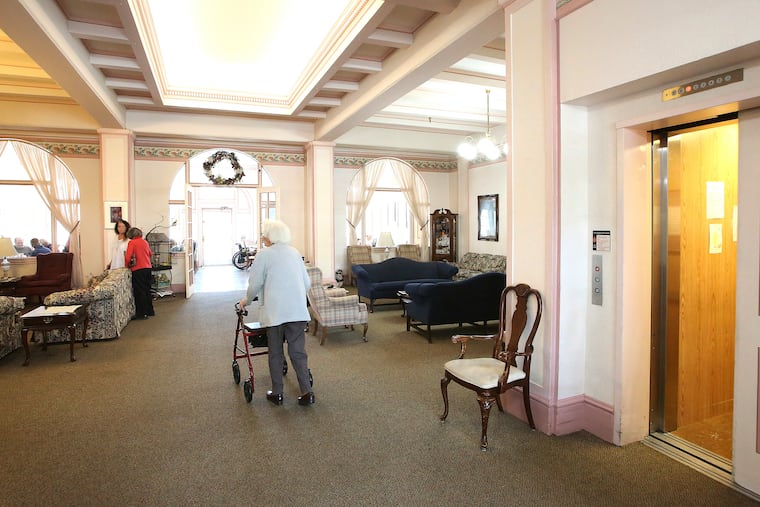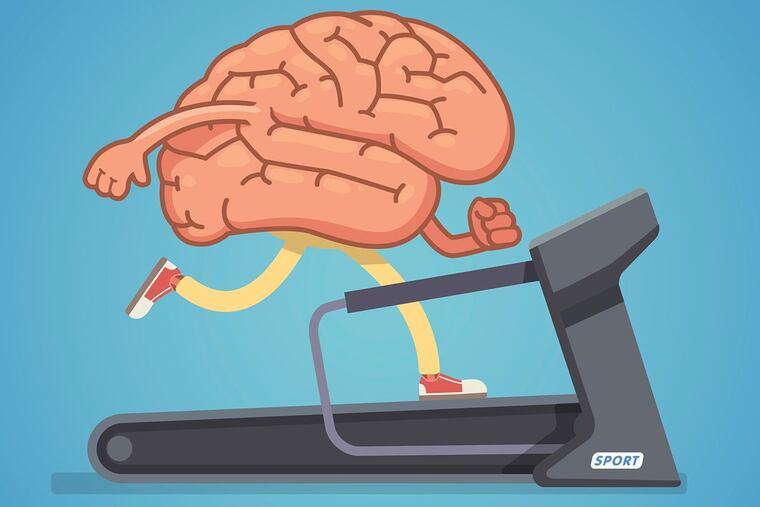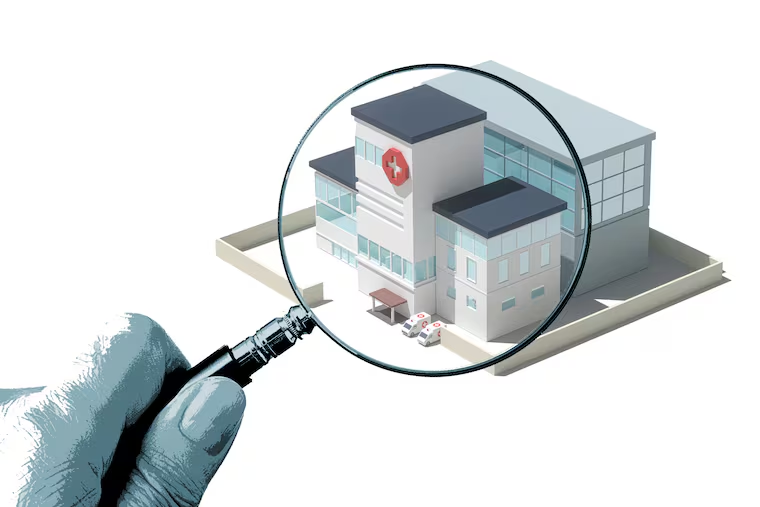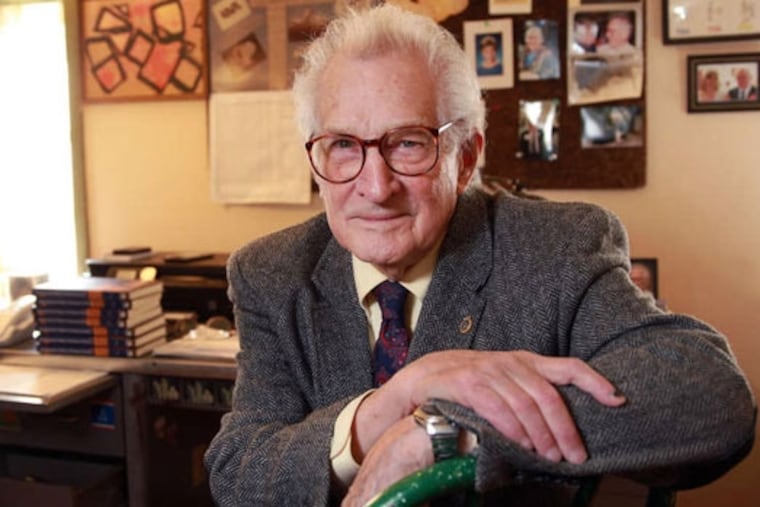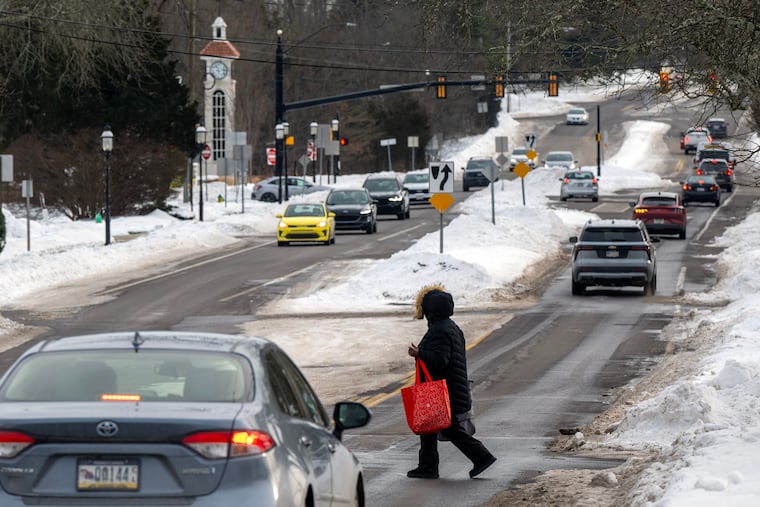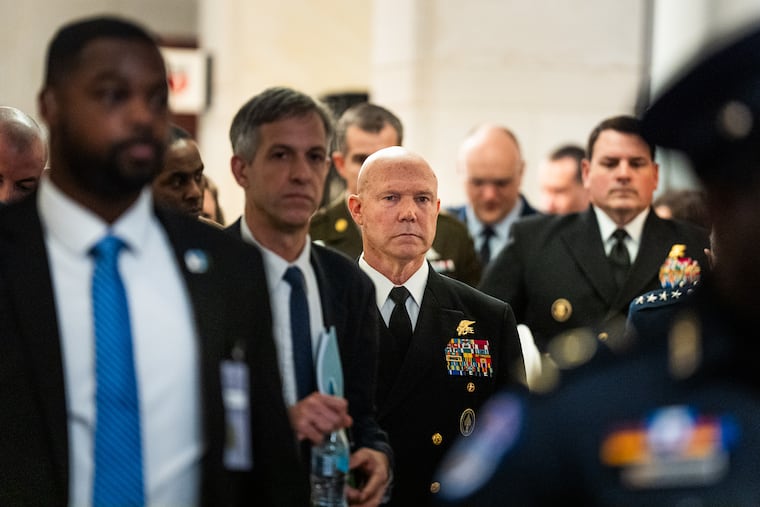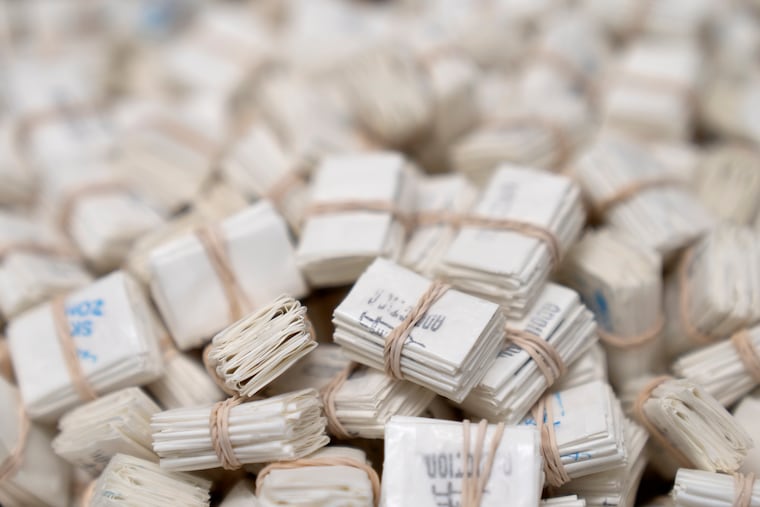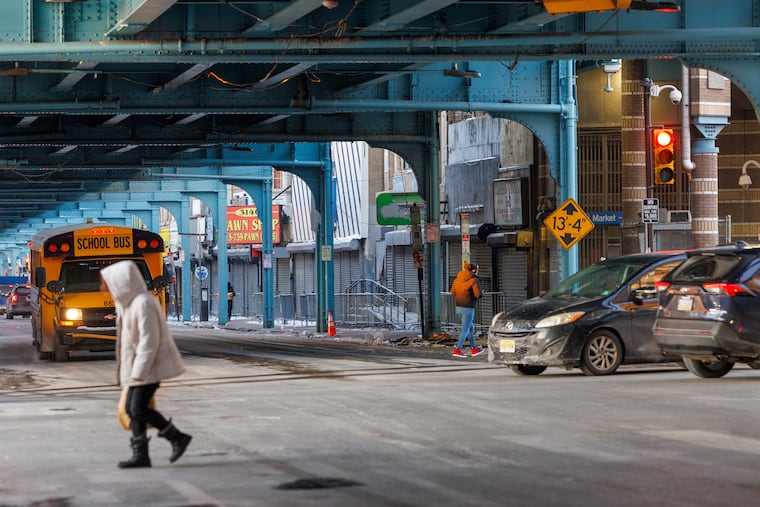Skip to contentPaula Span, KFF Health News
Joanna Fong-Isariyawongse, The Conversation
Barry J. Jacobs and Julia L. Mayer, For The Inquirer
Joanna Fong-Isariyawongse, The Conversation
Joanna Fong-Isariyawongse, The Conversation
Barry J. Jacobs and Julia L. Mayer, For The Inquirer
John Lin and Jalpa Doshi, For The Inquirer
BriarRose Edwins and Hayley Goldner, For The Inquirer
Layla Bouzoubaa, The Conversation
Marcia Dunn, Associated Press
Adela Suliman and Kasha Patel, Washington Post
Marcia Dunn, Associated Press
Adela Suliman and Kasha Patel, Washington Post
Noah Robertson, Tara Copp, and Ellen Nakashima, Washington Post
David Ovalle and Cate Cadell, Washington Post
Geoff Mulvihill, Associated Press
Noah Robertson, Tara Copp, and Ellen Nakashima, Washington Post
David Ovalle and Cate Cadell, Washington Post
Geoff Mulvihill, Associated Press
{"ENV":"fFpBXHccWQFScElNWAtGA39jZEBjDHAGf3BoCg==","CONTENT_BASE_PROD":"U2BWBnQIeAVTWmtDdzFsA3xzfEBjImAGfGB8B3ccY118YHhPdwxwBH9gZE9jDHNYf3NrXnQyZE1rXXQHdwxgAXxjWk93DHdZf2NZW3YhYEJ/cGhAYwx4BH9aZE5jMWxMa1pjX3QxY14=","ARC_ACCESS_TOKEN_PROD":"VV17T1wMbARSb3sDdAtSA3xzcAZgDHQHfHBkTXQMdAB8TVZAdjJwB39gaE93DHQFfGNgB2Myd1x/XXQEdDJ8BnxgZ1tgMlZNfE1wT2AMZEx8YHhNdwt/WH9NcE12InxMfGNnXmMyd1h8Y2tfdDJ0TXxNd150ImdZa110T2MMd1l/Y39bdjJ4B39jd1p3IndeaF1wBmAcd158Y2hNdAxnWHxjfE9jMX9fa2NnWmMxf11oY11bdFRgTWtdYAd3InBPa1p3XnQyf1x8c3tediFwBA==","GRAPHQL_KEY":"f3NVQWAIRVl8BQBHdj5WA39NaAdjMnwAfAVgBWMhYE1/WnhPYAx8Bn9NcAdgHGwAfGNrW2Mye11rWnRNYzJnXWtjWk92MlYGfGB8BmMyY1hrYGBAdDFjXHxjZEB3MWNffHN4Bnc3CAg=","GATEWAY_URL":"U3NrXXYiVgBSWlVCWzJaBXxzZE90IWQEfGNjX3cieE1oXXdcdDF7WWhjdEB3InRMfmNzW3ciUgVoTXADYzF8TWhjZEBjMnQHf3BkA2AMd1x+cHRPYwxWCA==","GATEWAY_SLS_URL":"VQRdX3YhcwRrcGtFXAhwA39geE9jMndYf2N0T2Acd1h8cGBPYBxwAGtaYEBjInRNfE18BnccZAZ8Y2BAYwtgAXxjeAZ3C2wHfF1/WmBUbE1rYGdfdCFgBQ==","FEEDS_URL":"f11nT11VewZ+YHxPXAx4A3xgd153MnAAfGNaQGMyd1h/Y1JPdwxkAXxwfAd0DGdef010QHYydAV/cGBAd1R8B2tja153HH9df11wB3YxfAB8cHxOdAtsBmtdaAR3DHwHf01oTnQhcE9oYHdfYFRgBHxjYAo=","RESIZER_KEY":"U01dWl0MUQd8cAhEWAxaBGhdUk50MWBNf3N/WncheAdoXX9adAx4QmhNcAd3DHBNf014B3QiXVh/TWdeYzJ8TH9zdAN3HGdca2N7XXQiZ1xrY3gHYDJ3WGtzeEBjMntZf11nWg==","GOOGLEANALYTICS_ID":"awVjRXcubAF8cEVbWxxaBHxdYE13MngGf3N3XHQhbEJoTWQGdzFsBXxze150VGwI","TWITTER_API_TOKEN":"VH9VW10iUQdrc2tbYD50A3xdeE13IngBfFp8BmBUbAR8c3QGYwx/X3xzUk50IWwBfE1STncyf1xoXVJAYwx7XWhdZE9gDH9YfE1rWnchbAF8c1JAYDJWAGtjaAd3MmAEa2BgQGALbARrXVJOYwtgTGtaY19jMW9cfHBrXndUeAVrWnROYAxwQnxwa1t3IWNZaF1rWmAMc15/YGtddFRsAWtze1xjInQFa3NVWmAxf118cH9bYyJZXWtaY1x0IWQHa2N/XHdUe15rWmdfdAtgTHxgY19gVG9dfGBoQHYxeARrc39aYwtgB2hgf1t0C2xPf2B/WnQLZAdrYGNeYwtgAWhNa1tgDGQEa3NnXXQxcABoTVVdYDFkBWtwaEBjIXtZa3NaAnQhZ19rc1ICYDF7XWtjf110VHtea3NWCg==","GOOGLE_CLIENT_EMAIL":"fHAIAnc+f0JQWl4EWgtvXH5dZ1t0IXBNaF13XncyYE1rY3RNdDFsBGtdcE10IXBCfmNSQHQyZEJ/BXgEdCJnWH5jd113MmQGfmNwAmMyeEx/c1ICdFRkT3xNVVtjDF5MfE14TWMyc1xoWmgEYwxjWGhdUgdjMl1Yf01nXGMLe1l8YGtbYwxkB39aa1xgHGBPfmB3X2Ace1lrc2tbdAtzXnxwfE8=","GOOGLE_PRIVATE_KEY":"U1pdAWAxWUJTBQRPWxxaB39NY1t3IXAFaGN0BHcxbEJoY3gGdAxwBGhdf1t0HGAEfnN/WnQcZE18XXNddzJ8TH5zfE93IlIEf11/XnQMfExrXWNadyF4T2twaAR0IXhNfGBnW2MLYEJoWmhPdCJeBHxNfAZ0C3tYf2NwBHQhZ1hoYHwCdzJWTX9waE9jC2xCaGN0QHQyeE1/c3gCYwtwT39dfE50InNfa2N3X2MyeE1oTXQHYwx7XnxaY1pgVHNefnB8BnQMd1l8cHdeYyFzX2tgZARjIntZf014QGAxZEJ/WmBOYFR7WGtgaAVjC2xCa2B8BmMiWVloWmdeYyJZX38Ff15gHG9YfHB7XWAMWV1rWnQFYAx7WXxdc15gHGdfa3B4BWAce15/YGBPYBxvWXxafAdgDHABfnB/X2MMZAF+YHRNYAt8AX9wf192In9Za11dXWMheAFrcHgGYFRkAWtzXV90DGxPaE1nXnQLeAVoXXdfdBxSTWhNcE9jMXNYfGN0TXQMVkx8XWNcdAxjWWtzeAV0MWdZa11gAnQxe1l+Y3NeYwt4T2hNdAVjMlJMfE10T3Qhe1loTXddYzFzWH9NcAR3MndZfGBkBXQyfExrcH9bdDF7WGhdfEB0HF1Zf01wBmAcZE9rXXAFYwtvWGhgaEBjIWNYa3BrX3chcE1/cGtdYBxjWWtgZE5jIXtffE10A2MhbEJ/Wn9eYzJ3Xmhaa1xjIWNff2BnWmMMdE9oWmNcYwtnWH8FYE1gMWdff2B0TXQxb15/cHQGYAxjXX5gYAdgVGNea2B3W2AyZ15oWmhAYwt/X3xae1xjIllZfFpgA2AMWVh/cHdadiJ/X2gFdE90MnddaAV8BWAMVgF+c1ZAYBx3Xn9zWV5gHFIAaGB8B3YyUVx/cGdcYyJzWH8FY11gDHgAfnN/XHcyZEJ/c39bdzFsTWtzcE13MmQEf2N0TXQxeE9rXVVcdDF4THxdd150IXBNfHN0B3QMeE1oY3dddCF4T3xNeE1jMWBCa117WnQMUkJ8TXRNdFRkQn9zf110InxPfGNjXnQiY1l/WmdfdBxzWXxdcAZ0MmRPfHNwTnQLZE9oBWgDdCJZWH5gfE9jMXNZf110TWBUb1h/YHxPdDJsT2hgf1tgHGNefwVoA2Mhb15rcH9eYBxkQnwFZE5jC2dZfmNwAmMyUV9rYHRNdAxvX2twZ15jC29Ya3BjX2MidE18WmAGYBx/X3wFY1pgVGNZa2BoQGMyc1loWmdfYDF/X3wFZ1xgMn9YfGNaQHQxY1hrWndfYwxzXH9afE9jImdcfmB8A2ALY158BWgEdjJnXX9gdAJgHG9Yf2B7XnYiY158YHxOYDF7XmhgYEBgDFFdaFp7X2AxYEJrc39fdAxgT35jUgd0MWxPaF14TXQcVkx8c3NfdAt8Bn9zd150HGBMa2NwB3QMbExrcGdedyFkQmtdfAZ0IWxNfGN3XmMLcE1+c2NbdFRzWXxdeAN0MllYa3N3XHQcXkx/c3RAdAx8TX9ga11jC39Za1p8BXQye19oWmtddBxkTXxwaAJjC2defwVrXmMMc1h8YGNcYzJgTWtdcAVjDGxNfGN/X2MxZ1l/Y3AGYzJdWH5wa1xjDF1ff1p3XWMLY15oBWRNYyFwTX9ddE5jMXBCf2BrXGMxb1h+YGhPYwtjWGgFdAdjDGdYfmB7XWBUZ1h8BWAFdCJ3Xn9wYAJjC3NcfwVkA2Mif1h/XVYCYAxjX3xwdARjIWdefE1ZXmMMY1h8YHddYAtzX2tdWVxgMlYAfwV7X2MMYAFoBWBPYyFvXn9geE5gVGdffGBjW3Yib1l/cHtbdyFkQnxNZ110MXAGfE10B3QieE98WmdcdzJgTGtwZE13Ml5PaE1wBnQxfEx/TXxOYzJ7WX5jfAVjMndZaGN3W3Qcc1lrYGhNdCJ8T39NdAN0MWdZfHBrX3QxfE1oY3QCdzJnWWhaf150MnBCfAVoT2MyYE1rXXADYwx7WWhga110MWNZfFpnXXQxfE9+YGteYFR/WH9wa1pjMmNffAVkTnRUcEJrYGQHdFRzWGtgfANgHHdZfnN7XmBUf15/BWtbYwxzXmgFYE9jInxPa2B0TWMid1loBWtfdDJnWGtaeAdjIXNfaFpoBWAcd11rWmhNYFRvWX5wZARgDHNfa3BjXGAxc1h8cGNfYyFjXHxdVk1gVGNZfGBgBHYiWVx/cGACYzJnXGtaYAd2Im9ffnB3XmAcXV9rXXNeYDJZXGhaY1t2MW9caF1ZXmAyUVh/YHRPYBxzXXxjaAR0MnRCf11wBXcMfE9/c39adAxkTXxNdAZ0IWRPfE1gBXQcUkJoY3dadBx4TWhNd190C2BMfF14BnQxfEJoWmdbdCF8TWhdeEB0DF5Cf013XmMLY1hoYGdbYwx8TH5wa11jDFZMfF13XmMMc1l8WmRPdCFgQnxwa15jMn9YfwVnX3QyUk1oTXdfYzJ/WGhaf11jC3tZfnN0TmMiWV9oXXdeYzJzWX9af190ImBPfFprX2MLfEx/BWACYzJvXn9aYANgHFFYfGB/XmMxb1l8YGddYzF/Xn9wYAJjMlFea2NzWmBUc1l/BWgGYyJ7XH8Fd1xjImdYaFpjXWAyWVhrWmgDYDFzX3xaf150ImddaAVgQGMid1x/YHwGYAtzXGtae1xgDFFefHB3XWMic15rWngFYAtvX2tzVgdgHF4BfHNWAnYif1x/XVZNYwxvXmtjVk5gHFZNfGN8QHcMYEJ/XWhNdDJWTWhNe1x0IWRCfmN0T3cycAZ/TXgHdCJgTH5jdAd0HF5MfmN4B3RUZAR8XXwFdDJvWX5zd1p0ImNZfF18B2Myd1h/XXgFYzJ0QmtjcAJ0VGAFfGBgB2MMe1h+YGRAYwtvWGtgZAVjMl1YfnBoBnQicE1/c3RNYzJvWGhdcAN0Mntef1pkT2AcZ1l/c3RNdDJgQnxwa1pjMlFYa3B8A2Mhf198TXhOdBxzX39waARjC39YaGN0TmBUYE1+c3QHYBx7XWtafE9gHF1Zf3B3X2MLZ1hoWnQFYyJ3XGgFZ1pgHGdZfHB0QGAyY1x8WmAFYDFvX3wFZ1pgVHtfaGBgTmMibAFoBXwGdjJZX3xwfAZgHGNZfHB8TmBUZ15+cHddYFRnXH9NVgJjMntcf3B0AnYiZAB/WmNeYyJ3XXxaaE92MmNefwV7XncieExoXXwGdzJeQmtdZE10VGRCa2N0B3cyXkx/Y2QEdwt8TX5jcE50ImxPaF17XXQcbExoY2dbdDFkTH5jcAN0MnxCaF10A3QhYEx+Y3BPYzJvWXxgaARjDGRNfE18BWMMfE9/c3AEYwx8T3xgZAZjIndZa3NwBWBUcE1rXXAHdBxzXn5jc11jC3hPfAV8TXQyZ15+YGBPdDJZX2tgYAR0Intea3BrXnQibE1rcGgGYzFzWXxjc1p0DH9efFpgB2AcWV98Y3RPYyJST39aYAd0MlZCfmBnWmMiUV9oWn9bYyF/WGtaZE1jMmdYf2B0TWALY118XXtbYyFjXXwFdAVjIn9ff3B0BWMye1x8BXwEYzFnX39aYAVgDH9ZfGNZXmMMZ1lrY1ldYyJeAH9gYAVgMllef01wQGAMY198Y1oDdiJnXnwFYARgC29ea2BjXGAMeAB8XXBPdDJsQnxde1t3C3hNaF1VXXQxZExoY3dcdBxwQnxaZAR0C2RCa3N3XXcybEJ+YGgCdAx0Bnxje15jMl5NfmN7XHQyXVhrYGgDdAtsQn9NcEB0MnBCfF18TWMycE1/TWNfYwx/WWhddAJ0MllYf1prX2MybE9/TX9fdBxzWGtaa19jDGNZfnBoT3cyWVh/cGQFYBxRXmtwaE50MXtYfHBoB2MhZE1oBWRPYwxRWX5zcEBgHH9eaAVgB2BUZEx8WmAFYzFzWGhaZ1xjImdZaGBgQGAcY1loBWRPYwx3Xn9zcE9gMmdda3BoAmAce198cHQCYDJ0T3xwZARgMn9efmBrWmMib1x8BXdeYzFvXX9we1tjDGNeaF1WA2Axb158BWgHYyFjXnxwfAd2Im9daAV4TmMhe198WmNfdjJ7X35weAVgDHABaAV4QGMMe1xrYHtbYAx4TWhjeAd0C3BPf01kA3QyZEx+c3QGd1RsTGtzc150IXgFaE10TnRUZE1oY3hNdDJjWWhddAR3MWRNf1prXHQLZ1l/XXAHdDJsTWtjfARjDHxCaF1wAnRUeEJ/cGtddCF8TGgFaE1jC39ZfmNwTnRUc1l8BWgEdCJSTXxdc1pjMl5Ca2N0QHQybEJ/Y3AGYyF4TXxdc15jDHNfa1pkQHQxYExoWn9dYzJ/XmtaY15jC2BCf1pgA3Qxe15oWmdeYwxnWHxNf19jIWdfa1poB2AxZ1l8BXdeYAx3WH5wa1xgHFZNfnB0B2Mxf1h8BWgFYyJ7XGhgfAdjDH9efGBrX2Axf15+cHtaYyJ7XH5zcAVgMXtYf2NaQGMMY19+YHQCYDJRWX5weE1gDG9efFpgB2Mie1x/cHhNdCJvXn5wYE1jIn9df11WB2Mie19oWmtcYDFnXHwFdAd0IXBMfF18BHQyZAd8TXgGdAx0THxdY190MXAGa3NkQHcyfE1/WmQGdAxgTWtjc19jDGRCfmN4AmMydE1/WmdaYzJgTGhNd150IndYaF1zW2MyY1hoXXdbYwtnWGtaa113IXxCf3BrXXQiZE1rWn9eYzJSQn9dZEB0IWdYfFpnXXQibE1/WmQFdDJjWXxaaARgVH9ZaAV/XWMxf15+cH9dYyFwTX5wYAR0MntZfF1zXGMMZ198Y3ACYyJvX2hgaE9jDG9eaFprXnQLc15rWmdfYFR/XnxadAdgVH9ZfAVgTnQhY1h8YGADYzJRWH5ga1xgC2dcfmBnXWAxY15+YHtdYFRnX39adAVgMntfa1poA2Axb1hrY1ledjJ4AWhaYE5jC29dfGB4BGBUYABoXVZNYDJjXGtaZAJ2ImNfaE1WT2AyZAF8Y1oFYAt/XH8FeE1gDHgAaGNwTXQMYEx/Y3tddDF4T39NfE10C2xPfmNwBHQMfE1/TXAEdAxkT35jeEB0Ml5Cf2N/XmMybE9/TXAGdCFkT3xzdE10Im9Zf3BrX3QcXk98TXtbYzJ8TWhga190Ml5Ca11kTXQyUVh/TXwGYzF/WGtgaAdgHHNZaGBoB2MxfE18Y3QCdCFwTX9jcARgVGdYfAV/WmMyb1h+cGteYzJzWH9zfEB0MmdYa3BkQGMyXk1oBWhOYyJ8T35jdAdjIXNYaGB3WmAcZ15oWn9eYBxgTGhgYE9gMXtZf2BoBmMMb1h/BX9cYDJZWHxaf1tgMWddaAVgQGMybE1rYHwFYAxzWH9gfE1gMmddf2B4A3YycAFoBXQHYBxvXX9wYARgMXtdaFpkTWMic19rYGAFdiJSAX8Ff11gC2xNa2NdXWAyZABoBXxOYAx8AWtdVgZgHH9ca1p4TWAyZExrY3RAdFRgBGhNUgV0MXhNfE18BnQccEx8TWROdzJ8T39je153HGRCfmNwT3QhYEx/Y3tadyFgTWhga1x0MmxPfHBkBnQLc1l/Y2QGdCJ/WGtwa11jDGdZfmNwBnQie15oY3NfdCJwTH9Nd1x0IWxMaFpoQHQLf1h8TXAGYwxvWX5gY1x0MmdZfnN7XmMMY1loWmgHYwt7WHxzcE10IWAEfGN0QGMxZ1h+cGddYDJZX2gFf110MmRCaGN0B2MiUV9rWnwEYyJnX39ga1xgVH9eaGN7X2MMUV1rcGQDYBxWQnwFfE1jIn9ffwV8A2Mhc1lrcGQGdCFnX2tgY15jDG9eaFp8TmAyUV5/TXQGYBxZXH9afANgDFldfnB4B2Axe1l/YHQCYyJnXmgFfE9gMm9eaGBjW2MLb15/WnQHYBxRXn9aY192MW9efnBkTnYifAB8Y1YCdDF8TXxjcAJ0DGQHaE14B3QMbExrY3xNdAtwTX9Nc1t3HHBPf2N7XXQcZAZ/TWdbdFRwBGhgZAR3IWxNaGN8BnQycExoXXNbdCJgBX5zc1p0ImRCfF13XXQMfE1rY3BAdzFwQmtjdEB0HHxPa11/WnQcVk9rdgwK","BLUECONIC_ENDPOINT":"fFpZW10xb0NTTXNHWFVwA39zZEB3HHddf2B4BmMyc198c3QHdzJ0TXxgf1p0MmQHfF1aBnRUbAZ8Y2dbYzJzX2hdWVtjMnwHa114QGMif158TWNbdyFjXGtjfAZ0IX9f","BLUECONIC_STORE_ID":"VXBWAlsxQV9Sb2QEYFVwA3xjZEB3HGNdf2NWQGMyfEJ/c1JPYAx3XnxjZAdgHHNca2BkBHYif1h8XVZPdAxkB3xzUgd3InAEfE1aTXcyfAR/TWhNYBx7WXxdcEBjDHwAf01WTXQyfE1rWntbdCJvXw==","BLUECONIC_KEY":"VXNWBFscWVhVYH9bWiEBA3xzZAZ3HGQFfHNwT2MMc158YHhAYBEICA==","BLUECONIC_SECRET":"U3B/RF0ydE1VBVVfWDJSA3xNVk10HH9ZfHN4BncyZAR8c3gGYBx4BnxjfAR3IWNef3BoTWAyfAR/Y2AHYDFvWXxddE90HHBNaF1/WmMxY1l8TXBOdyF8BX8FfAZ3MnQFa2B0QGM3CAg=","AMP_AUTH_BASE_URL":"VG9rWncxBFl/c2NAWlRGA3xje1p3DHNZf2N4T3QccAB/c2QGdBxkBXxga1tgMnRMfE1gBnQxfE18Y2hPdxx0TWhdYEBjIntcf2NnWnQcd15rYGgHYzFvXmtgdAV0MX9YfE1rW3cLY1hrWndbdFRgTWhjWk50InQGaGBjX2MLZAFrc3tadBEICA==","AUTH0_DOMAIN":"VVpjTncxe19rWmdddxxSA3xjVkB0MnBCfGB4B2AydAV8YHxAYDJzXmhdYAdjDHRNa2N0QHciZAF8Y2hPYwxzWQ==","AUTH0_CLIENTID":"UGBJAVtUcExrcEVFWgxaQnxjdAV3IWxPaF1wBXcMZEJoY2QHYzJSTHxNcAN0IXgEa3NkQHcxYAd+cGdcdCF8QmhNe1x3MnRCa2N/XGMyXVl8TWAGdBxnWWhNZAZ0InhCa110Ag==","PIANO_ID":"VWAEX2Myd15oBGtZWwxaT39NcAJ0DHxCf2NSQHQhcEJ/XXQHdDJSTHxQDAo=","MIXED_CONTENT":"fnBSAls+ZwNrBEEFdFRgA39jaEB0DGNcf3N8B3QicAV8Y3hAYDJ3WX9jVk9gHGddf3NdXmMic1lrXWhAdiJgTXxzZEBjInQBf2B7XmMhY1h/c3wGdCJ4THxdcE53VGNZa2NrX3dUY1k=","VIAFOURA_SITE_UUID":"UnNgQFsIdE9UcABfWAtSA3xjaEB0InQHf2NST3cyYAF/c2AGdyJ3X3xdeAZ3DHhCaF14BHcif118TXAEdiJnWHxdVk52MnBNfF1wTXQyUV9/BXhNYDJ7Xn9Nc1pgDHgAfE1kTWAye1x8WnwFdDJsAQ==","GOOGLE_CLIENT_ID":"UnBdT2MLQgVrBVVBXVV0A3xgZEBgHHBPf3NWB2AMY118cGRPYAxzXXxgdE9gMWxMf2NVWnQhYAZ8YGgHYAxzXXxjWk90DHhPf3BnWmALYE1rWndbdzJ/XGhdeE5gMWNefAVnWmMyfEx8WnRNYFRgAHxzY1t2MX9Ya2NdW2MMd11rYGdbdwxwBWgFY1pjMXgGa118AmAMdEJoTWhNdjJzWWtze1x0InQEfHN7XHcMd1h+YGhPYAxwT3xjUkB0InRPfHNST3cLZAd8Y3RPdDJkAA==","AUTH0_BASE_URL":"U39zBVtVZ0VoTV1NYwtWA39zcE93HHABfHNoQHYyYAR8Y1IHdzJ3XnxjZAZ0InRCfE1jWnchY1x/cGtbdBxzXGhdVkBgHHgEa2B4TmMie118cHRPdCJ4THxaf1tgMXABa2NVWnQLbEJrY1YK","CHARTBEAT_DOMAIN":"UGN4BXRUWV1rTVoGdDFgA3xzUgZ3HGAFfGBgB3QidAd8YGAGdwxnXGhdeE90DHNZ","G_OPTIMIZE_CONTAINER_ID":"fGNZTVsMe15rY3NcY1VwA39dYAR3DGdZf2NgTXYyeAd8TWBAdBx4THxwaE1jAQgI","G_TAG_MANAGER_CONTAINER_ID":"U3N/RWM+d158XV1YWAtGA3xNVgRgDHtdfE18BWMyeAF8c3wFYDJ4BnwFaAo=","SF_CLIENT_SECRET":"VHBVXFwuWgdrb2NZWj5wA3wFdAZ0HHwGf3N4T2Acd19/YHwHdiJ8AHxNfE13ImQHfHNaBmAyf118BXQFdwx7XXxNaE53ImAAfF1STXQcf1l8XVZPdjJzXX9ddAdgMnwGfE1STnQMcAd8XWhAYzJ4Qn9wYE90HGBMfAVoTnYye1x8YHhPYwtsBHxjYEB3InNffGBoBmAydAF8c3taYwx0THxgeEB0MnABfGN8QHQMd1x+YGBAdiFsTXxjVgo=","G_RECAPCHA_V3_KEY":"f297X11UXVp8b0FCXRx4A39dZE12InABfGNkBWMyd1h/WnhOdiJ3X3xNaAZ3DGwBf2B0TmAcf1x8BWhAYyJWAXxgdEBgHHdZfwV3XnQLbAFrY1pAYwx0AHxNUkB0HHAAfHB4TnYiZAR/cHROdCF4T39je1tjDHABf1poCg==","G_RECAPCHA_V2_KEY":"a3NrT1sxUURSb39HWwxaTGtjZE50VHxCa114BnQyUk1/Y3hAdCFkQmtzfE13VHwHa118BXRUYEJ+Y3xNdFRgTX9zc1t0DG9ca3N3XnQieE1/WmdedDJ8TGhNZ150IWRCfGNoAnQib1l/c3BNYFRwT3wFaAd0Ml5PfHYMCg==","GROWTHBOOK_CLIENT_KEY":"VXBZB1wyc15TcEFPXDFaA39wZE93IngBfGB8QHcMcAV8XWBPdAx8TXxwaAZ3HHdff3NkTXQiZEJ/c1ZPdFRgBA==","SOPHI_HOSTNAME":"VXN/BF1VZ1t8YGhPW1RCA3xgdAZ3DHAEf2NaBmMidEJ/cHhAdjJnWGtgfE9gDHRPaF1oQGAydAFrXXQK","HTL_SCRIPT":"UmB8Tlo+WVpUcHsHYzFCA3xzdEB0MnNefGNkTWAMdEx8c1ZPYzJ0Bn9zVk93InQFfF18QHcidE98cHdbYBxnWGtjdEB3HGNfa2BrWnYhYAVoXVJAYDJ7WHxNWgd3MnwGa1pjW3YhY198TVVbYDF/XnxdWVt2MWxCa2NWTXcMeAB8c2tdYyJ8TGhNfAJ0C2AA","LIVEBLOG_WS_SERVER":"aAVZAlohewNoBXtdWwhsA3xwYEBjInNcf2BkB2Ayc158Y1pAYyJzXmtgYEB0MnAFa2BgT3cidAZ8YGhAYAxzX2tjZE9gHHxNf3B4BmAce11rXXdbdDFjXg==","SOPHI_SCRIPT":"U39nWncxb1lUc3gHWjEBA3xgfE93HGQAfHB8QHQMfE1/c2BAYwx0AXxNYAZ3In9ZfGB0BnQcZAV8YHRPdyJ0T2hae15jIW9efF1kBnRUb1h8Y1lfYyFgB2tjaE13C3xMf01/W3QhbABrY39bd1RvWH9aaE5gC2Nda11SBXdUf1hrY2NdYzJ0AWtzYE10IXNca113WmAcfAd/WmgCdzFkAWhNe110IWdda1p0Cg==","STATS_WIDGET_CLIENT_ID":"a1ldWV0xAEF/BQhBdgxwBnxjaE93InNdf3NWT3cMYAB8c3BAYAxwBHxwYE9jDGQHfGNoT2AcZE98YGBPdxxzXWtdWgZgEQgI","_id":"9ec679b4d2d6a6eb4414b714587aa58136c3ab4e6aab1d207784571a68d1eceb"}
